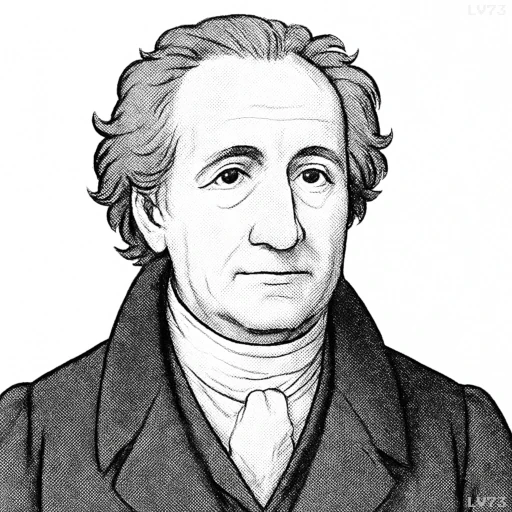“Nothing is more fearful than imagination without taste.”

- August 28, 1749 – March 22, 1832
- German
- Poet, playwright, novelist, philosopher, politician
table of contents
Quote
“Nothing is more fearful than imagination without taste.”
Explanation
Goethe warns that unrestrained imagination, when not guided by taste or discernment, can lead to confusion, chaos, or even harm. While imagination is a powerful and creative force, it requires the guidance of refined judgment to produce something meaningful or beautiful. Without taste—the ability to recognize what is aesthetically or morally good—imagination can result in creations that are excessive, misguided, or disconnected from reality.
Historically, this idea reflects Goethe’s belief in the importance of balance between creativity and restraint, a common theme in the Neoclassical and Romantic movements. In Goethe’s time, great works of art were not only judged by their creativity but also by the moral and aesthetic standards they upheld. Imagination, when unchecked, could lead to wild excesses, which might overwhelm or distort the essence of what was being expressed.
In the modern context, this idea is still relevant in art, literature, and media. For example, an artist with unlimited imagination but no sense of taste may produce works that are difficult to interpret or lack emotional depth, resulting in a disconnected audience. In the same way, content creators today might produce works that are visually or conceptually extravagant, but without taste, they may fail to resonate or even cause discomfort.
Goethe’s words serve as a reminder that imagination must be anchored in taste—the ability to discern beauty, truth, and value—to avoid veering into excess or incoherence. It encourages us to cultivate both creativity and a refined sense of judgment to ensure that our imaginative efforts contribute meaningfully to the world.
Would you like to share your impressions or related stories about this quote in the comments section?



